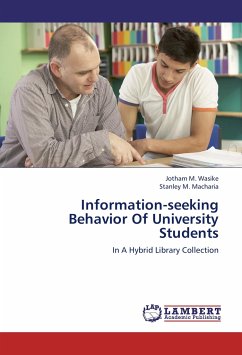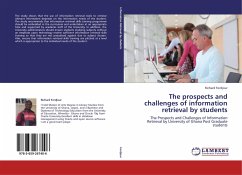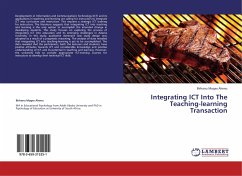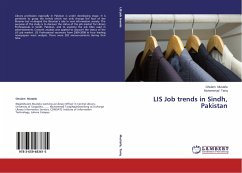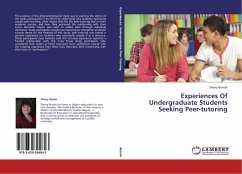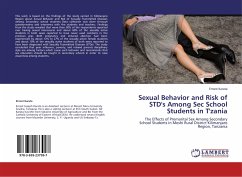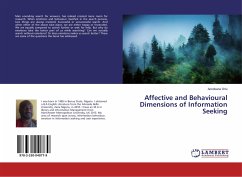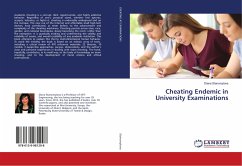Information systems have supported multiple formats of information resources for decades. These formats have developed progressively from paper and microforms to audio-visual tapes and CDs. However, digital transmission which forms the newest medium (information resource) has had a significant impact on the information-seeking behaviors particularly of university students. This is because; the blending of print and electronic resources presents a wider scope of pertinent issues. Within the many questions posed, two main issues echo repeatedly. First is the preposition that doubts the need to sustain print in an increasingly digital world while the second warns of the dangers of relying on a still-developing technology that has often portrayed weakness related to issue of obsolescence. This research examined these prepositions in the light of their effects on information-seeking patterns of postgraduate medical students.
Bitte wählen Sie Ihr Anliegen aus.
Rechnungen
Retourenschein anfordern
Bestellstatus
Storno

